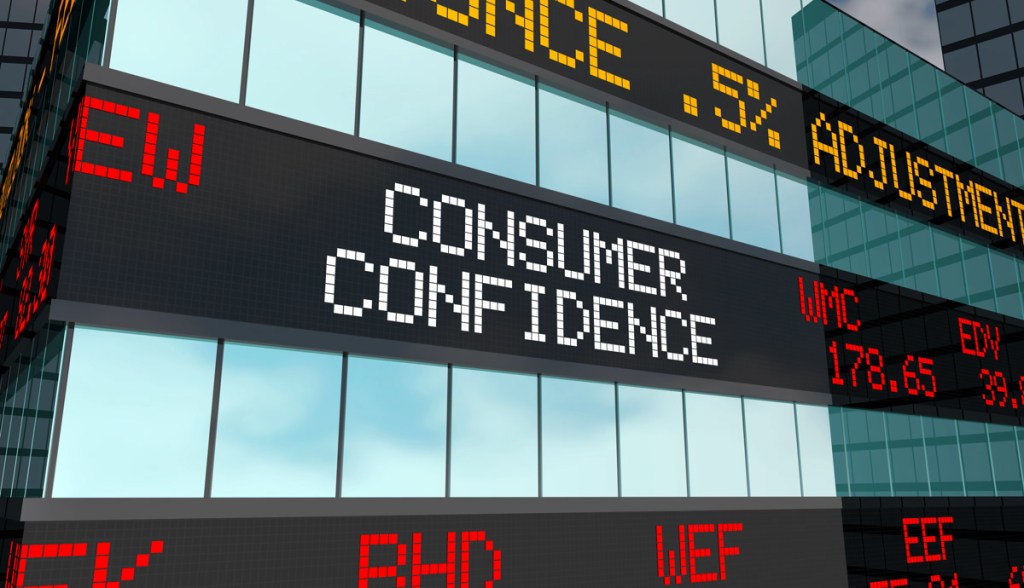Consumer confidence, a key measure in gauging whether people are willing to make big-ticket purchases like homes, surged the most in more than 17 years during September, surpassing the expectations of economists.
The gauge rose to 101.8, the highest level since the start of the pandemic, from August’s upwardly revised 86.3, the Conference Board said on Tuesday. Economists expected the index to rise to 89.5, according to a poll by Trading Economics.
“A more favorable view of current business and labor market conditions, coupled with renewed optimism about the short-term outlook, helped spur this month’s rebound in confidence,” said Lynn Franco, the board’s senior director of economic indicators. “Consumers also expressed greater optimism about their short-term financial prospects, which may help keep spending from slowing further in the months ahead.”
Wells Fargo economists called the confidence jump “impressive.”
“Both perceptions of current conditions and expectations saw sizeable improvements,” the economists said in a statement.
Americans’ confidence increased as the daily rate of new COVID-19 infections dropped from more than 77,000 in mid-July to 33,000 on Monday, based on data from Johns Hopkins University. Economic experts including Federal Reserve Chairman Jerome Powell have said America’s economic path is linked to how well it handles the pandemic.
“The path of the economy will depend significantly on the course of the virus,” the Fed said in its post-meeting statement on July 29.
Anthony Fauci, director of the National Institute of Allergy and Infectious Diseases, issued a warning this week that the winter months may bring a resurgence in daily cases and deaths.
Fauci on Monday called the daily infection rate an “unacceptably high” number that should be below 10,000 to prevent a fall outbreak.
“There are states that are starting to show an uptick in cases and even some increase in hospitalizations in some states,” Fauci said during ABC’s “Good Morning America” on Monday.






